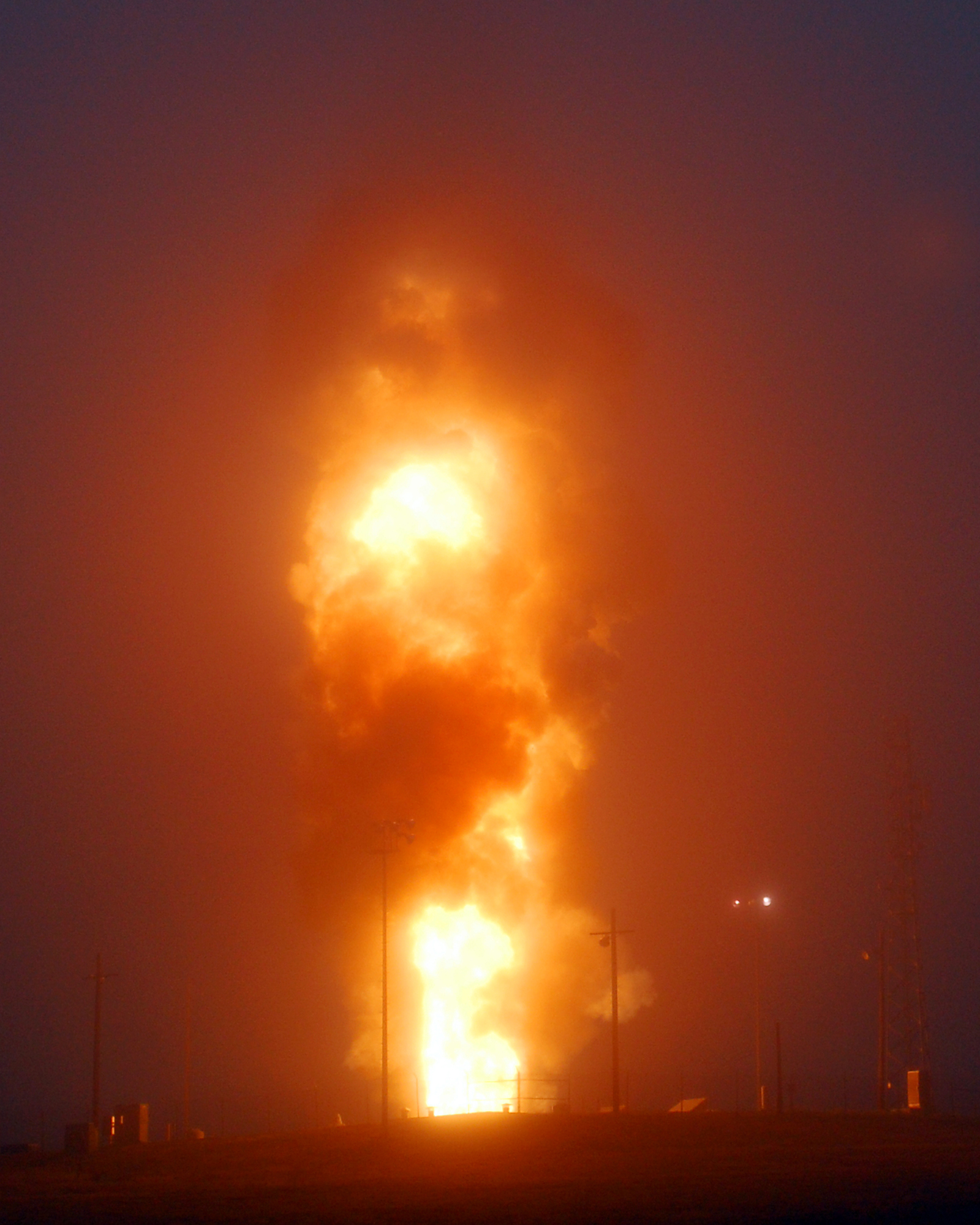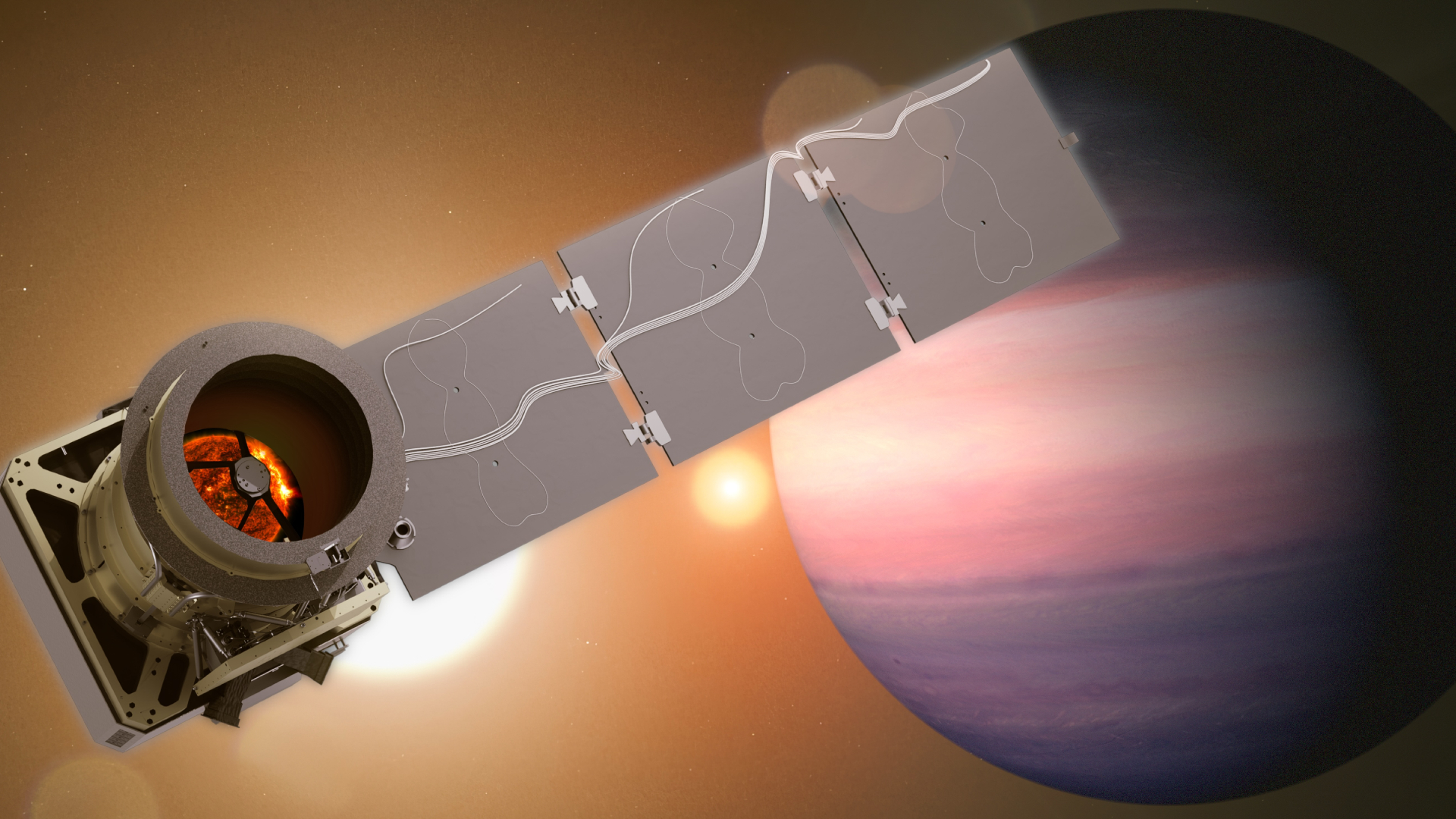Air Force Destroys Ballistic Missile After Launch Failure

The U.S. Air Force destroyed an intercontinental ballistic missile just after its launch early Wednesday (July 27) after a malfunction that prompted safety concerns, Air Force officials said.
The unarmed Minuteman 3 missile blasted off from Vandenberg Air Force Base in California at 6:06 a.m. EDT (1006 GMT) and suffered debilitating anomaly that forced flight controllers to terminate the rocket as it soared over Vandenberg's western launch range.
"At all times public safety is paramount. We plan for situations like this and everything was executed according to the plan," said Col. Matthew Carroll, 30th Space Wing chief of safety, in a statement. "Established parameters were exceeded and controllers sent destruct commands." [Most Destructive Space Weapons Concepts Ever]
Wednesday's missile launch was an operational weapons test to determine the Minuteman 3 missile's reliability and accuracy, Air Force officials said. The missile's single unarmed re-entry vehicle was expected to travel about 4,200 miles (6,759 km) and end up at a target southwest to the Kwajalein Atoll in the Pacific Ocean, they added.
An Air Force team will investigate the cause of the anomaly.
The Air Force's Minuteman 3 intercontinental ballistic missile has a range of more than 6,000 miles (9,656 km) and can travel at speeds of up to Mach 23 (15,000 mph or 24,000 kph).
During peak flight, the missiles can reach heights of up to 700 miles (1,120 km) above Earth before plunging back down toward their targets. That means that the weapons fly higher than the International Space Station, which orbits Earth at an altitude of about 220 miles (354 km), when they hit the top of their trajectories.
Breaking space news, the latest updates on rocket launches, skywatching events and more!
The first Minuteman 3 ICBMs were produced in June 1970, with production shutting down in December 1978, according to an Air Force fact sheet. The Minuteman weapons system was initially conceived of in the late 1950s as a strategic weapon with an intercontinental range to serve as strategic deterrent force for the U.S. military.

Tariq is the award-winning Editor-in-Chief of Space.com and joined the team in 2001. He covers human spaceflight, as well as skywatching and entertainment. He became Space.com's Editor-in-Chief in 2019. Before joining Space.com, Tariq was a staff reporter for The Los Angeles Times covering education and city beats in La Habra, Fullerton and Huntington Beach. He's a recipient of the 2022 Harry Kolcum Award for excellence in space reporting and the 2025 Space Pioneer Award from the National Space Society. He is an Eagle Scout and Space Camp alum with journalism degrees from the USC and NYU. You can find Tariq at Space.com and as the co-host to the This Week In Space podcast on the TWiT network. To see his latest project, you can follow Tariq on Twitter @tariqjmalik.
